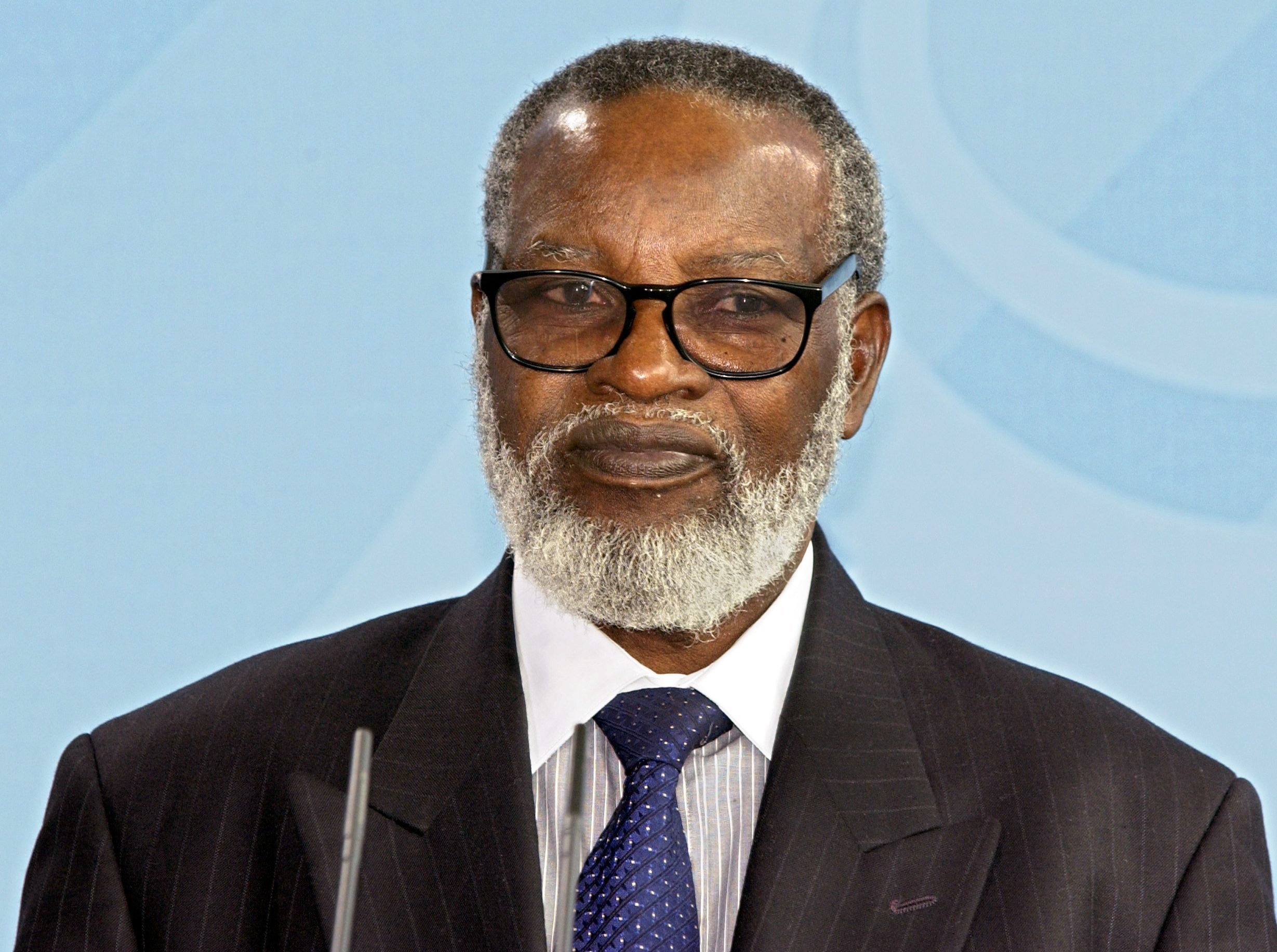Nujoma, << nyoo YOH mah >>, Sam (1929-…), led Namibia’s struggle to become an independent nation. Namibia gained independence from South Africa on March 21, 1990, and Nujoma became the country’s first president the same day. He served as president until March 2005.

Samuel Daniel Shafilshona Nujoma was born on May 12, 1929, in Ongandjera in northwest Namibia. At that time, Namibia was called South West Africa and was administered by South Africa. Nujoma was educated at the Okahao Finnish Mission School before moving to Walvis Bay. He later moved to Windhoek, where he worked for the South African Railways, a government-owned rail transportation system. He also took night school and correspondence school classes. In 1956, Nujoma married Kovambo Theopoldine Katjimune. The couple have four children.
In 1948, South Africa’s government introduced a policy of strict racial segregation known as apartheid. The government claimed that the peaceful coexistence of people of different races was possible only if the races were separated from one another. However, white South Africans used apartheid chiefly as a way to control the country’s nonwhite majority. In 1959, Nujoma helped found the Ovamboland People’s Organization (OPO) to fight segregation and to campaign for the rights of Black people in what is now Namibia. (Ovamboland is a region in northern Namibia named for the Ovambo, also spelled Owambo, who are Namibia’s largest ethnic group.)
In December 1959, the South African government arrested Nujoma for helping organize a demonstration against the forced removal of Black residents from Windhoek. He was subsequently released and fled the country in early 1960. Later that year, the OPO adopted the name South West Africa People’s Organization (SWAPO). The new group elected Nujoma as its president. Nujoma established a SWAPO headquarters in Dar es Salaam, Tanzania. From there, he led SWAPO forces in an armed struggle to free Namibia from South African rule. This war began in 1966 and became interlinked with a civil war in neighboring Angola, where SWAPO forces had camps. In 1989, the Namibian conflict ended with an agreement that was overseen by the United States.
In the 1960’s and 1970’s, Nujoma identified himself as a socialist. A socialist supports an economic system in which the government owns, manages, or controls the major means of production and distribution. In 1989, however, Nujoma began to support a market economy, and he maintained the existing system of private ownership for Namibia’s vast mineral resources. Nujoma returned to Namibia in 1989 to lead SWAPO in parliamentary elections. SWAPO won the elections, which were supervised by the United Nations. In 1990, the National Assembly elected Nujoma the country’s first president. He was reelected in 1994 and 1999. As president, he became known for bringing stability to Namibia. Nujoma stepped down from the presidency in 2005 and resigned the leadership of SWAPO in 2007. In 2009, he earned a master’s degree in geology from the University of Namibia.
